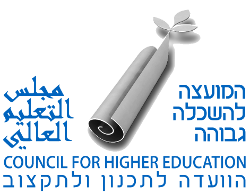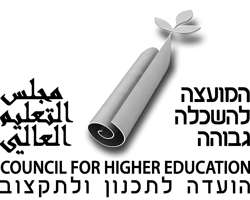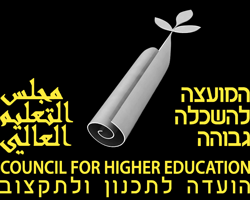Collection of Data for Start of Year 2022/2023
- 342,000 students are expected to attend the 2022/2023 academic year, compared to 337,230 in 2021/2022, an increase of 1.6% in the entire system.
- In 2021/2022, 337,230 students studied at all degree levels in all higher education institutions, of whom 256,170 were bachelor’s degree students, an increase of 1,500 compared to the number of bachelor’s degree students in 2020/2021.
- After the exceptional increase in 2020/2021 of about 24,000 students after the COVID pandemic, the number of students in 2021/2022 stabilized and the forecast is that the trend of stabilization will also continue in 2022/2023.
- The overall number of high-tech students, including women, has continued to increase in 2021/2022.
- There were a total of 37,750 engineering students during the 2021/2022 academic year - approximately 18% of all bachelor’s degree students. Moreover, an additional 20,540 bachelor degree students studied mathematics, statistics and computer science. A total of about 58,290 students in technological subjects are needed in the high-tech sector.
- The number of students who began medical studies increased in the past decade from 530 to 895.
- The number of first-year nursing students doubled in the last decade from 1,000 to 2,200.
Minister of Education and Chair of the Council of Higher Education, Dr. Yifat Shasha-Biton:
“I welcome all the students at the beginning of the academic year.
In academia in Israel many processes are taking place the aim of which is to strengthen and develop the system, make it accessible to extensive parts of Israeli society, make it more relevant to the employment market as well as advancing and developing research, while retaining academic excellence, and continuing to advance the establishment of a university in the Galilee that has already been approved by the CHE, which will also help to realize important aims, as well as strengthening the north and its residents.
We will continue to act to strengthen the academic system in Israel, which is an important growth engine for the Israeli economy, creates researchers at international level who contribute to science and to global research, and brings great honor to the state of Israel.”
Prof. Yossi Mekori, Chair of the Planning and Budgeting Committee of the Council for Higher Education:
“The data shows a general increase in the numbers of students in the system, particularly from the point of view of the percentage studying the high-tech subjects needed by the economy and industry. We are also glad to see the significant increase in the percentage of women studying these subjects. These increases would not be possible without the significant resources directed by the PBC and the CHE to these fields and the response of the higher education institutions to this task.
“The Israeli academic system is in a good place and we aspire to continue to strengthen scientific research excellence with the aim of retaining the competitive advantage of Israeli academia in the international arena. With this aim the next multi-annual program will focus on the fields at the forefront of global research, including sustainability, advanced biomedical research, bio-convergence, data science and artificial intelligence. We will increase the resources designated for competitive research and research infrastructures, and we will act to strengthen academia-industry-employment connections, together with activities the aim of which is to extend access to higher education institutions for the entire population, with emphasis on fields with demand and growth.”
More women in academia
- Women are 60% of the students in academia. Viewed annually, this is a significant increase in the percentage of women (all degrees) – 58% of bachelor’s degrees, 65% of master’s degrees and 53% of PhDs.
- There has been an increase in the number of women attending high-tech studies – in 2009/2010-2021/2022, the number of female students who attended bachelor’s degree studies in computer science (including mathematics and statistics) increased 2.6 times – from 2,622 to 6,884 in 2021/2022, and the number of female engineering students grew by 40%: from 8,581 students in 2009/2010 to 12,310 female students in 2021/2022.
- The “Equator” Index for advancing gender fairness was launched in institutions funded by the Planning and Budgeting Committee (PBC) for the purpose of increasing the representation of women in senior staff and the administration of higher education institutions.
Access to higher education of diverse populations
- Access to higher education in peripheral regions: in 2020/2021, about 65,000 students, who constitute approximately a third of bachelor’s degree students, came from settlements in lower socioeconomic clusters (Clusters 1-4). The participation of students who live in those settlements is particularly notable in the academic colleges funded by the PBC, where they were 38% of bachelor’s degree students, similarly to the percentage of the population that lives in those clusters (40%).
- Access to higher education in the Arab sector: There are more than 60,000 Arab students in higher education, and they are 18% of all students in Israel, whereas they are 21% of the population. This represents an increase of 133% since the beginning of the last decade.
- Excellence Program for students of Ethiopian origin: An increase of 1.5 times in the number of bachelor’s degree students of Ethiopian origin during the multi-annual program – from 2,937 in 2014/2015 to 4,522 in 2021/2022. Their percentage among students is 1.5%, whereas they are 1.7% of the general population.
- More Haredi (ultra-Orthodox) students: During the past decade the number of ultra-Orthodox students has multiplied threefold, from 5,500 in 2010/2011 to 16,575 in 2021/2022 – 4.9% of all students in Israel, whereas they are 13% of the population.
International higher education
- OECD rating: Israel is among the world’s leaders in terms of the percentage with higher or academic education among ages 25-64.
- We continue to advance our international higher education standing: more international post-doc and advanced degree students.


